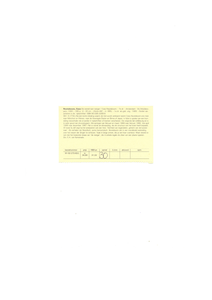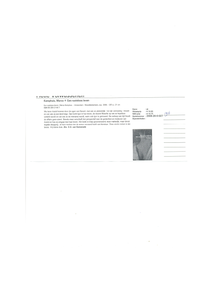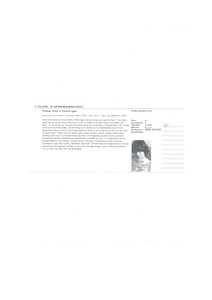Recensie van Braggaar, D-J. (2006) Nederlandse letterkunde voor dummies
DOCUMENT

De vraag wat Bourgondische letterkunde is, is niet eenduidig te beantwoorden daar ruimte en tijd van invloed zijn op de definitie.
DOCUMENT

Le chevalier délibéré by Olivier de la Marche is now largely forgotten. Immediately after its publication in 1483, however, it enjoyed great success. The text was disseminated throughout Europe and was held in particularly high esteem in the French-speaking parts of the Netherlands. Such was its popularity in this region that it came to have a profound effect on Dutch literature. The text was translated twice into Dutch, by Pieter Willemsz in 1492, as Vanden ridder welghemoet, and by Jan Pertcheval a year later as Den camp vander doot. Two very early editions offtie original French text were also published in the Netherlands. Moreover, wood cuts from the book were used in other volumes, and the first Spanish translations of Le chevalier délibéré were printed in Antwerp. Several Dutch authors were also directly inspired by this French poem, using it as the basis of their own work. Jan vaA den Dale and Jan Baptist. Hb,uwaer¥are particularly indebted to de la Marche. These writers were in turn highly successful, even if they have now lapsed into obscurity: Jan van den Dale was held in especially high regard, as his Wre vander doot was reprinted at least five times.
DOCUMENT

Recensie van Roggeman, W. (1992) Beroepsgeheim, deel 6, inspirerende gesprekken over het schrijversvak.
DOCUMENT

Recensie van Nooteboom, C. (1989) De wereld een reiziger, serie reisverhalen, bruikbaar om onderwijs te verluchtigen.
DOCUMENT

Recensie van Jongstra, A. (2002) De tak van Salzburg. Met bruikbare teksten om onderwijs te veraangenamen.
DOCUMENT

Recensie van de literaire bespiegelingen en verhalen van Toine van Benthem (2004) Vaderschap en literatuur, bruikbaar voor onderwijs over vaderschap.
DOCUMENT

Recensie van de roman Ik was Amerika van Gustaaf Peek (2010). Goed bruikbaar voor onderwijs over racisme.
DOCUMENT

Recensie van Kamphuis,M. (2006) Een rusteloos leven o.a. over Igor, docent filosofie.
DOCUMENT

Recensie van Timmer,E. (2003) Zwarte ogen over professor Ducrot, "die je midden in de nacht wakker kunt maken voor L.P. Boon".
DOCUMENT
